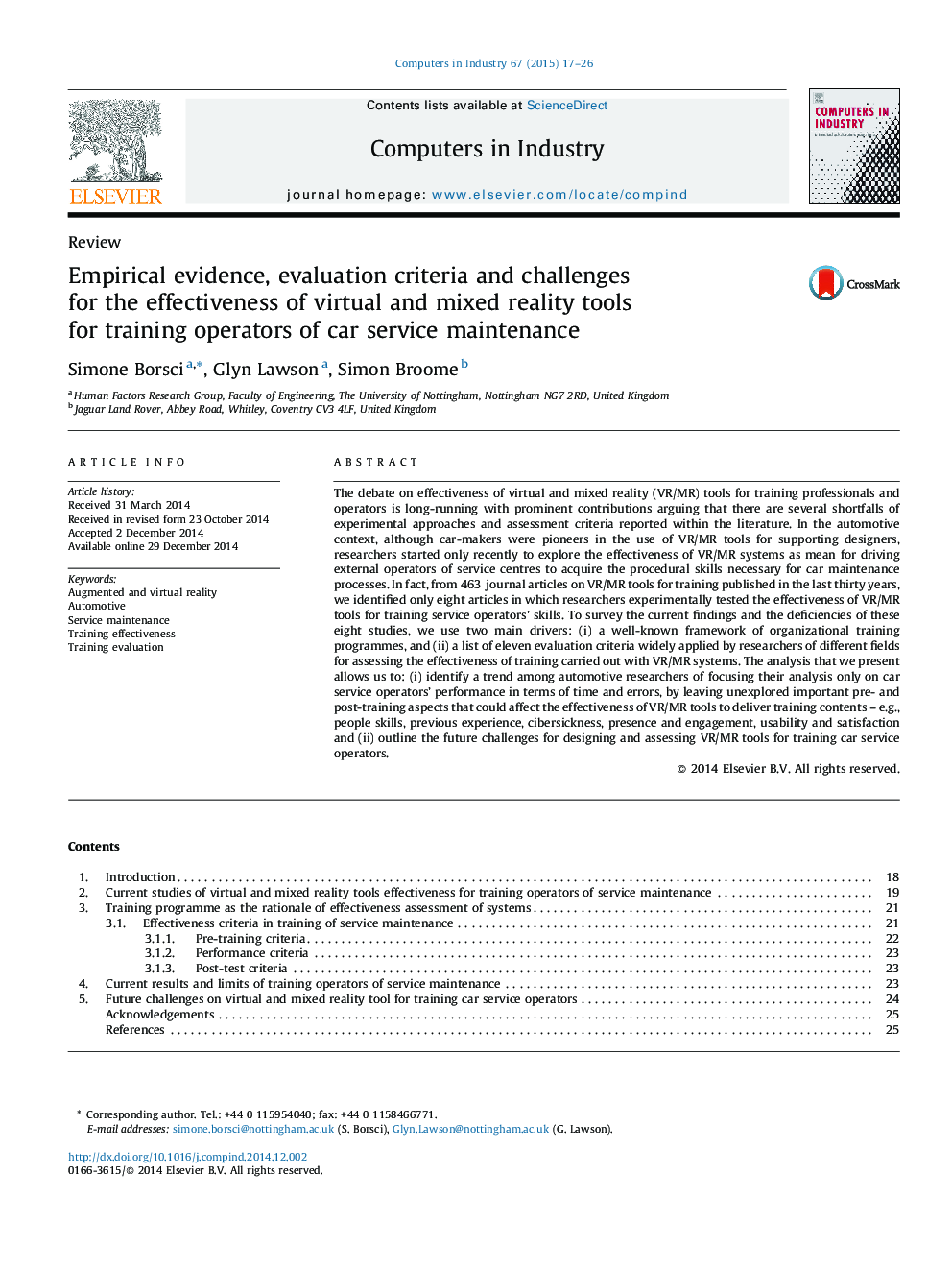| کد مقاله | کد نشریه | سال انتشار | مقاله انگلیسی | نسخه تمام متن |
|---|---|---|---|---|
| 508934 | 865463 | 2015 | 10 صفحه PDF | دانلود رایگان |
• State of the art review of car service training with virtual and augmented reality.
• Current criteria considered by researchers focus on training effectiveness.
• Limited assessment of trainees experience pre- and post-training.
• This paper reports challenges for next generation of studies on training technologies.
The debate on effectiveness of virtual and mixed reality (VR/MR) tools for training professionals and operators is long-running with prominent contributions arguing that there are several shortfalls of experimental approaches and assessment criteria reported within the literature. In the automotive context, although car-makers were pioneers in the use of VR/MR tools for supporting designers, researchers started only recently to explore the effectiveness of VR/MR systems as mean for driving external operators of service centres to acquire the procedural skills necessary for car maintenance processes. In fact, from 463 journal articles on VR/MR tools for training published in the last thirty years, we identified only eight articles in which researchers experimentally tested the effectiveness of VR/MR tools for training service operators’ skills. To survey the current findings and the deficiencies of these eight studies, we use two main drivers: (i) a well-known framework of organizational training programmes, and (ii) a list of eleven evaluation criteria widely applied by researchers of different fields for assessing the effectiveness of training carried out with VR/MR systems. The analysis that we present allows us to: (i) identify a trend among automotive researchers of focusing their analysis only on car service operators’ performance in terms of time and errors, by leaving unexplored important pre- and post-training aspects that could affect the effectiveness of VR/MR tools to deliver training contents – e.g., people skills, previous experience, cibersickness, presence and engagement, usability and satisfaction and (ii) outline the future challenges for designing and assessing VR/MR tools for training car service operators.
Journal: Computers in Industry - Volume 67, February 2015, Pages 17–26
